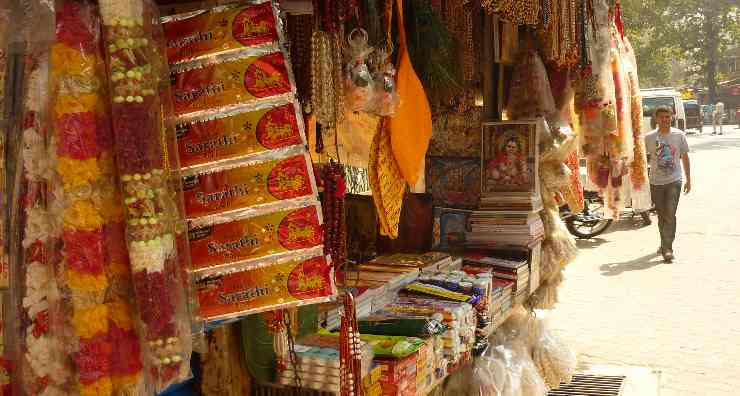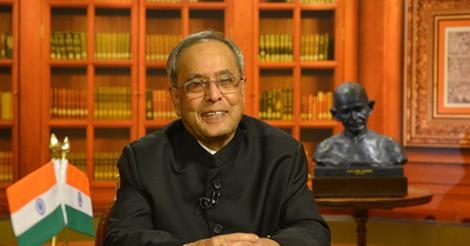Driving commercial and political engagement between Asia, the Middle East and Europe
Driving commercial and political engagement between Asia, the Middle East and Europe
Driving commercial and political engagement between Asia, the Middle East and Europe

The President of India Pranab Mukherjee has called for sweeping reforms to the systems of governance in India in a speech to the Indian public on the eve of the country’s 68th Independence Day.
Mr Mukherjee, who assumed office as the 13th President of India on 25 July, 2012, said it was time that India took up the challenge of governance by “reforming the policies, practices and systems of governance” so that the “enormous aspirations” of the people of India could be fulfilled.
Speaking on the eve of the national holiday, which marks India’s independence from Great Britain in 1947, he said India needed “creative thinking in governance that enables fast-track development and ensures social harmony.”
Reflecting similar comments made by Sir Mark Tully in a recent interview with Asia House, he spoke about the importance of “efficient and effective management of [India’s] social resources for the well-being of the people” and the need to restore India’s existing institutions to serve the purpose of effective government, admitting that some institutions were “dysfunctional.”
“The nation has to be placed above partisan impulse. The people come first,” he said. “A country of our size, heterogeneity and complexity calls for culture-specific governance models,” he added.
“Good governance is critically dependent on the rule of law, participatory decision-making, transparency, responsiveness, accountability, equity and inclusiveness,” he continued. Mr Mukherjee also called for a deeper engagement of the youth with the institutions of democracy and “ethical and responsible behaviour from the media.”
“I sometimes wonder: has our democracy become too noisy? Should not Parliament again become the great hall of sombre thought and well-debated legislation? Should not our courts of law become temples of justice?” he asked.
Mr Mukherjee was the Minister of Finance from 2009 to 2012 and Leader of the Lower House of Parliament from 2004 to 2012. He has also served on the Board of Governors of the IMF, World Bank, Asian Development Bank and African Development Bank.
A veteran politician in the former ruling Congress Party, in his speech, he also said the decisive challenge of the times was “to end the curse of poverty,” adding the focus should shift from the alleviation to the elimination of poverty since “nearly one third of the population still live beneath the poverty line.”

The President of India Pranab Mukherjee
“The poor cannot, and will not, wait for yet another generation to see the very essentials of life – food, shelter, education and employment – being denied to them,” he said. “The benefits from economic development must percolate to the poorest of the poor.”
According to the World Bank, in 2010, 29.8 per cent of the 1.2 billion population of India was defined as extremely poor (living on less than $1.25 a day). By 2012 this had dropped to 21.9 per cent.
Mr Mukherjee, whose term runs for five years, replaced Pratibha Patil, who was India’s first woman president.
Born in West Bengal, he also spoke about the importance of Indian youth receiving a well-rounded quality education that includes citizenship as much as professional skills, questioning whether this was currently the case.
“By the end of the Twelfth Five Year Plan, we would have achieved a literacy rate of 80 per cent. But would we be able to say that we have provided quality education and skills to our children to be good citizens and successful professionals?” he asked.
He also spoke of the importance of showing respect to and caring for the environment.
“The Prime Minister’s call to honour the memory of Mahatma Gandhi on his 150th birth anniversary, by making India a clean country by 2019 is commendable, but it can be achieved only if each Indian converts this to a national mission,” he pointed out.
Mr Mukherjee, who resides in the Rashtrapati Bhavan in New Delhi, said: “Every road, every path, every office, every home, every hut, every river, every stream, every particle in the air around us can be kept clean, if we but cared just a little.”
He also issued a warning against intolerance and extremism, currently prevalent in Iraq, Syria and other parts of the world, saying “those who believe in the poison drip of inflammatory provocation do not understand India’s values” which “reject extremism in all its manifestation.” India has long prided itself on the huge diversity of ethnic groups, cultures and religions that coexist harmoniously in the vast land.
He also praised the health of India’s democracy for “electing through a remarkably peaceful electoral process, a stable government with a clear majority for a single party, after three decades.”
He added that the increase in voter turnout to 66 per cent in the 2014 general election from the last election’s 58 per cent demonstrated the vitality of India’s democracy.
Regarding the Indian economy, which has slowed down to below five per cent in recent years, despite having huge potential, he said: “I sense renewed vigour and optimism in the air. Signs of revival are visible.”
Indian GDP growth for the financial year 2013-2014 was 4.7 per cent, the second consecutive year the economy has expanded by less than five per cent. However he commented that the manufacturing sector was on the rebound and notwithstanding occasional spurts, inflation had started moderating, but he admitted that food prices were “a matter of serious concern.”
“Freedom is a celebration; independence is a challenge,” he said. But despite the challenges facing India, the speech retained an optimistic tone. “The stage is now set for our economy to move on a high growth trajectory of seven to eight per cent, which is essential to ensure the availability of adequate resources for equitable development,” he concluded.
naomi.canton@asiahouse.co.uk
Sir Mark Tully also spoke about the need for good governance and reform of public institutions in India in an interview with Asia House. To read what he had to say click here and here.
To read our exclusive series of stories on the Indian elections 2014 click here.
To find our about our upcoming events click here.
